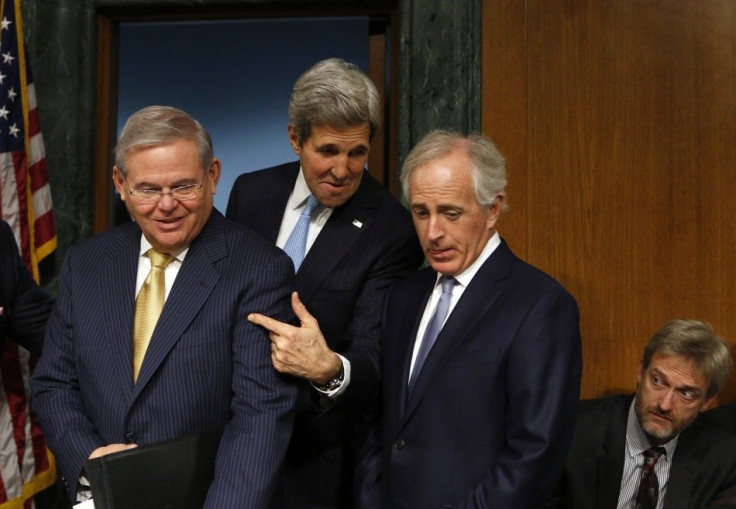US Seeks Expanded, Greater Military Powers Vs ISIS, Tells Congress Not To Limit Potential Response

The United States wants to conduct a more massive and bigger military undertaking versus the radical extremists ISIS. Secretary of State John Kerry told a Senate committee to extend the current three-year limit of the current Authorization for Use of Military Force Against Terrorists, or AUMF, telling them not to "preemptively bind the hands of the Commander-in-Chief or of the commanders in the field in responding to scenarios and contingencies that are impossible to foresee."
Senator Robert Menendez, author of the AUMF, said regardless of how Washington puts it, it is seeking an open-ended authorization on the war versus ISIS. Both Democrats and Republicans, according to CBS News, were skeptical of the powers Kerry is asking for the present administration. Both groups of lawmakers, regardless of party affiliation, blasted the White House for asking them to draft the authorization when in fact it already had in mind what it wants to make out of the case. They said the White House should have just drafted the AUMF and then just showed it to them for approval and voting. "It seems to me you're making the case for a rather open-ended authorization," Menendez said. "If that's the case, you should just say it."
The U.S. had launched at least 1,100 airstrikes against the ISIS since five months ago. Part of the deal when Congress approved the airstrike launch was that the U.S. will not send American ground troops, but only when needed, such as only to protect or rescue U.S. troops or civilians, conduct "limited operations against high value targets," or conduct "missions not intended to result in ground combat operations."
But Kerry said such stipulations limited the power of President Barack Obama to go after the dreaded radicals. He said the inhumane actions of the ISIS isn't limited alone in Iraq and Syria.
Kerry told the Senate Foreign Relations Committee, a panel he once led but now chaired by Menendez, the clause that states no geographic limitation but precludes the deployment of ground combat troops restricts Mr Obama's powers as chief executive, especially since he had consistently committed that "U.S. military forces will not be deployed to conduct ground combat operations against ISIL." Bottomline, Kerry doesn't want the clause put into writing, verbatim and black and white.
The Obama administration, according to Kerry, just wants to be uncensored once the ISIS crosses borders and becomes a threat to American interests or personnel in other countries. The AUMF constraints Washington to immediately deploy missions because of the clause.
"In our view, it would be a mistake to advertise to ISIL that there are safe havens for them outside of Iraq and Syria," Kerry told lawmakers in a statement. Possible security scenarios in the future, such as a high-stakes hostage situation or if IS comes upon a chemical weapons cache that "none of us can anticipate," he said.
"One thing is certain: Daesh will continue to spread until or unless it is stopped. So there should be no question that we, with our partners, have a moral duty and a profound international security interest and national security interest in stopping them."
Observers believed that Mr Obama may stick to his word about not sending ground troops, but no one knows how his successor will use the AUMF. Or even Mr Obama may even renege on his word, just like what he did when he ended American involvement in Afghanistan and, yet boosted the size and expanded the mission of the residual American force that will be there in 2015.





















